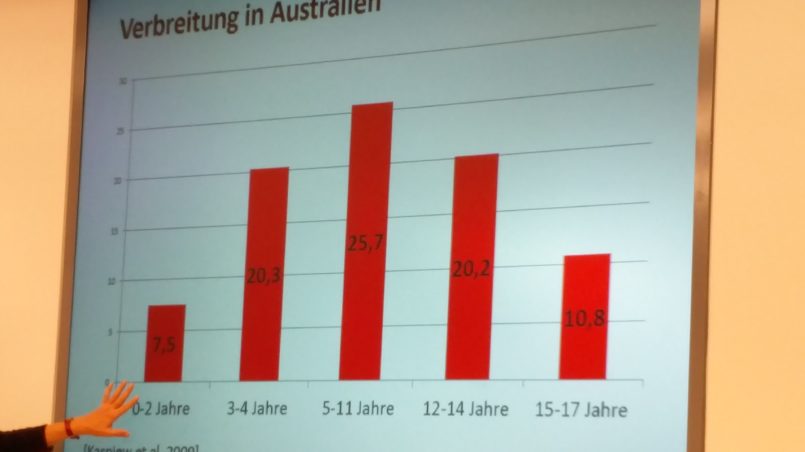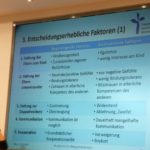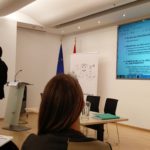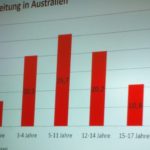Dual Residence: Will a Dream become Reality?

Event data
- Datum
- 22. 10. 2016
- Host
- Plattform Doppelresidenz
- Location
- Wien, 3. Bezirk
- Event-type
- Fachtagung
That this day is drawing closer is due to Anton Pototschnig and his “Plattform Doppelresidenz” (Dual Residence Platform).
What is dual residence?
The Residence Model
If parents in Austria live apart, the oft-quoted equality of the sexes becomes an issue: one parent, usually the mother, makes decisions about the child, about the way the child is brought up, where the child lives, the environment in which the child grows up, the schools which the child will attend and, as such, about the future path that the growing person will take in life. The other parent has, from a legal perspective, only one task: to transfer money. This model, which we consider usual and natural, is called the “residence model” by educational scientists.
In combination with the practically absolute deprivation of rights and exclusion of the “parent without custody”, many fathers experience a deep feeling of inequality and a constant source of conflict arises which precisely this policy, which is often enough observed and commented upon in a questioning and uncomprehending manner, is responsible for.
The Dual Residence
While Austria’s system of family law still wallows in the idolatrous “mother culture”, global science has again – finally – discovered how important and irreplaceable fathers are for their children. In Austria this knowledge is being pushed by, among others, Prof. Dr. Martina Leibovici-Mühlberger, an educationalist.
As a rule, the residence model stipulates contact every fortnight. If he is lucky, a father will also have the opportunity to see his child on a Wednesday afternoon during the week so that he can also experience some contact with the child’s daily life. However, family law, which forces fathers to work full-time due to maintenance obligations, and a community which does not even provide any support when creating living space suitable for children make it impossible for many fathers, willing to care, to be there for their children.
In the light of this, the mask of hypocrisy falls from many who purportedly strive for an “equality” (sic) of the sexes: if a father does not only want to care for his child to the same extent as the mother but rather, due to this, would like to reduce his working hours and become exempt from the burden imposed by maintenance and would like to receive half of the family allowance as well as support for the children’s living space, reservations, which I have always considered to be spurious arguments, are raised. In truth it is about money.
The Symposium
Anton Pototschnig and his team brought together renowned experts and the topics were well chosen to address the relevant issues.
Mit Dr. Reinhard Jackwerth, an experienced family lawyer and judge, provided insight into the situation behind the scenes of the judiciary. He evocatively made clear: equality between parents is not an objective. Whether he wanted to or not, he did reveal the decisive weak point in family law – the conflict between parents as a result of the consciously or unconsciously created power gaps. He described how the justice system is aware of how estrangement functions giving details of a conversation with a child who confessed:
When I talk to mum about dad, the room suddenly becomes cold.
This meeting may have been the wrong place for them but, faced with such experiences, discussions have to be held with the judiciary to find out what it can do to prevent the estrangement of fathers.
Lastly, Jackwerth surprised the critics of dual residence when he stated: dual residence is less dependent on whether a parent allows or refuses communication than on whether there is joint custody. Since its introduction, the latter has lost its good reputation because it can become ineffective as a result of a refusal to communicate.
- Experiences of Dual Residence
Speakers then presented positive experiences with dual residence, statistically assessed, from both parents and children as well as personal examples. The audience were finally convinced that dual residence can function by Europe’s number one expert: Prof. Hildegund Sünderhauf-Kravets.
She presented and summarised the verifiable positive experiences of tens of thousands from the pioneering countries around the world, from Australia to Scandinavia and made us think about what we are actually doing to the hundreds of thousands of children in Austria whose parents have separated. From a psychological perspective, they carry a much heavier burden than dual residence children for their entire life.
A treat for the supporters of dual residence is Sünderhauf’s dismantling of the argument that constantly moving house represents a burden for children: in a well-presented visual manner she reported that moving house occurs just as regularly in the case of visiting children in the residence model.
Discussion
Prof. Leibovici-Mühlberger chaired the concluding discussion well. I considered this to be decisive for the success of the evening as only in this manner can ways for the realisation be highlighted. The flaw is, however, the choice of the participants on the podium, which reflects the decision-makers in our family policy because a representative of mothers and fathers was not present. On the other hand, the symposium showed more than ever: the representation of fathers willing to have custody is already functioning, a grassroots movement is blazing the trail and is stretching out a hand with a clear “yes” to mothers who are positive towards the idea of dual residence.
Translation into English: Donna Stockenhuber




